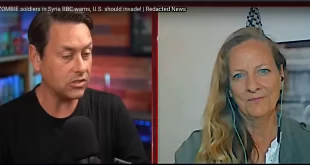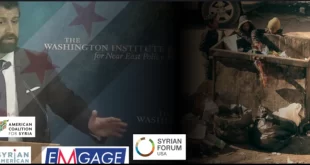from The NewsDesk at The Cradle, April 25, 2023
Damascus condemned the European Union’s decision to strengthen its “unilateral measures” against Syria, saying the bloc was repeating its lies by claiming that sanctions on Syria do not hinder the provision of humanitarian aid, RT Arabic reported on 25 April.
An official source in the Syrian Ministry of Foreign Affairs and Expatriates said that “Syria condemns in the strongest terms the new European Union decision to strengthen illegal unilateral coercive measures against it.”
The comments came after the EU updated its Syria sanctions list on 24 April with 25 new individuals and eight entities. EU officials allege that most of the newly added individuals, including relatives of Syrian President Bashar al-Assad, and entities are responsible for producing and trafficking the amphetamine-based drug Captagon.
EU officials also claimed in an announced statement that “EU sanctions in place regarding Syria are not meant to impede the provision of humanitarian assistance to any part of the country.”
The Syrian foreign ministry source responded by adding that “the European Union repeats its lies when it claims that the sanctions imposed on Syria do not hinder the provision of humanitarian aid or access to food and medical equipment, which makes its policies a serious threat to the lives and livelihood of Syrians and reflects negatively on the country’s economy, and that the exceptions that the European Union boasts of have no effect at all, but are for media propaganda and concealment of the reality of its policies towards Syria.”
Former US Ambassador to Turkiye and Iraq James Jeffrey noted that the US and EU sanctions were part of a “maximum pressure campaign” on Syria and that the Europeans are “holding the line against reconstruction assistance and diplomatic recognition. They are passing packages of sanctions after package of sanctions.”
Syria expert Joshua Landis of the University of Oklahoma noted that the US and EU sanctions policy toward Syria “further immiserates the Syrian people, blocks reconstruction efforts, and strangles the economy that sustains a desperate population during Syria’s growing humanitarian and public health crises.”
The EU first imposed sanctions on Syria in September 2011 following the start of the US-backed war on Syria. US planners worked with Saudi, Qatari, Turkish, and Israeli intelligence to arm and fund extremist armed groups such as the Free Syrian Army, Nusra Front, and later ISIS to topple the Syrian government.
In an effort to complement the extremist-led insurgency, EU officials imposed sanctions on Syria’s oil industry, blocking export to Europe. The EU announced at the time the sanctions “are significant as the EU is Syria’s biggest oil export market. Syria produces about 385,000 barrels of oil per day, and exports about 150,000 barrels per day, of which most goes to European countries.”
In April 2013, militants from the US-backed FSA and Nusra Front jointly assaulted Deir Ezzor province and captured 95 percent of the oil fields in the province.
EU foreign ministers then “lifted an oil embargo against Syria to allow rebels to sell crude to fund their operation,” as the Financial Times reported.
Time Magazine reported that “As part of the decision, the EU ministers also agreed to export technical equipment, ensure the rebels’ shipments of oil and invest in the rebel oil businesses.”
Joshua Landis noted the importance of controlling the oil fields, explaining that “Whoever gets their hands on the oil, water, and agriculture holds Sunni Syria by the throat” and that “the logical conclusion from this craziness is that Europe will be funding Al-Qaeda.”
 Syria Support Movement solidarity with the Syrian people
Syria Support Movement solidarity with the Syrian people





